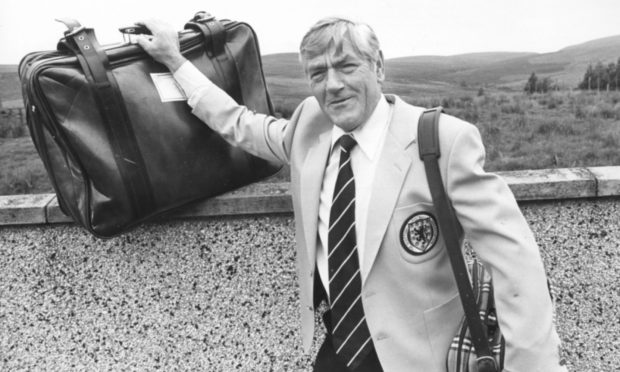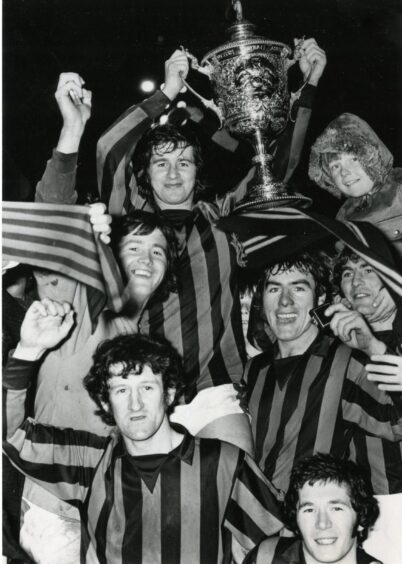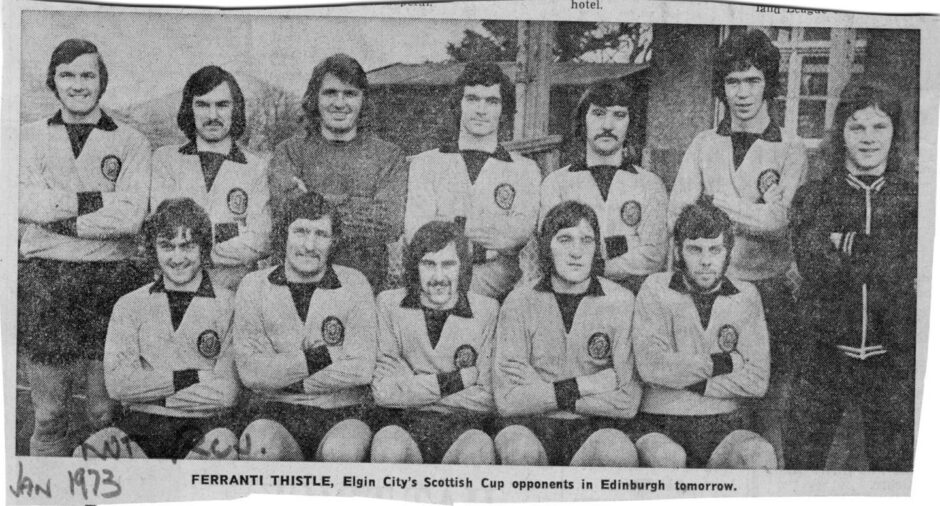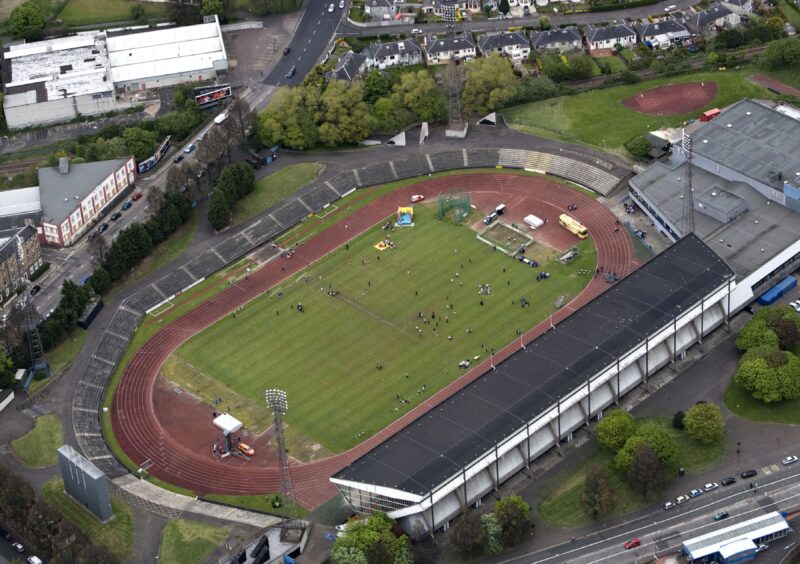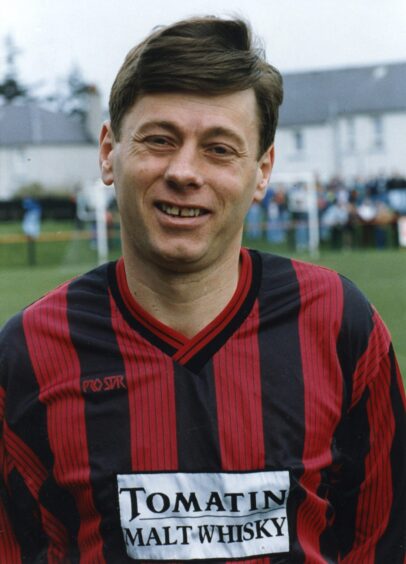The Inverness Football Memories Project has turned the clock back 50 years – to Friday, May 24, 1974.
The group, which meets monthly to recall sporting moments, is recalling Inverness Thistle’s attempt to join the Scottish Football League, having won back-to-back league titles in 1971-72 and 1972-73.
The Jags were one of four Highland League sides interested in gaining entry to the national league when the Scottish Football Association decided to admit a 38th league club.
This opportunity arose following the demise of Third Lanark and a restructuring of the league set-up to create a Premier League and two lower leagues.
The other Highland teams bidding for entry were Forres Mechanics, Elgin City and Ross County.
Ferranti Thistle of Edinburgh and Hawick Royal Albert, who played in the East of Scotland League, and Gateshead United, from the Northern Premier League, also threw their hats into the ring.
Thistle had ‘high hopes of success’
Jags were flying high at the top of the Highland League, with an excellent ground complete with new floodlights installed just the year earlier and had high hopes of success, gaining the support of Inverness Town Council and Highlands and Islands Development Board as well as both Rangers and Celtic.
In the first ballot, they emerged with 13 votes, the same as Ferranti Thistle, with Elgin, Forres and Ross County attracting only one vote each.
In the decisive second ballot involving only Thistle and Ferranti, the Edinburgh side emerged winners by 21 votes to 16.
Thistle concluded that most clubs did not want the inconvenience of one long journey to the Highlands each season.
Ferranti were recent SFA members
Formed in 1943 as an amateur works team, Ferranti only became members of the SFA in 1972 – the year they played their first Scottish Cup tie, losing to Elgin City.
They gained some prominence at that time by winning the Scottish Qualifying Cup (South) in 1973 and played Partick Thistle in a high-profile David v Goliath Scottish Cup tie (which they lost 6-1).
Thistle were hopeful of success, given that Ferranti’s City Park, Edinburgh, did not meet SFA standards and their name breached strict sponsorship standards at that time and would have to be changed.
The Jags’ case was promoted by chairman Jock McDonald, who at the time was a divisional member of the SFA, being the North of Scotland FA representative on the national body.
Jock lobbied tirelessly to gain support for Thistle’s case, highlighting Thistle’s recent success, excellent facilities, and the importance of promoting the national game outwith the Central Belt.
He even organised a challenge match with Queen of the South at Dumfries to prove the point that Thistle were more than prepared to travel long distances to honour their fixtures.
On the face of it, there should have been no contest. And in modern times the Ferranti bid would have been dismissed out of hand.
Livingston stemmed from Ferranti
To compound Thistle’s angst, on gaining entry to the Scottish League, Ferranti Thistle changed their name and their home ground before playing their first game in the third tier of the Scottish League in 1974.
Because their ground did not meet basic standards, Edinburgh Corporation stepped in and offered the use of Meadowbank Stadium in Edinburgh, which had been built to house the Commonwealth Games in 1970.
Ferranti also changed their name to Meadowbank Thistle – again to meet the SFA’s entrance criteria.
In 1995, Meadowbank Thistle were to become Livingston FC, when the club encountered financial difficulties and moved to a new all-seater stadium at Almondvale, Livingston.
Jock McDonald was to live to see an Inverness side play in the national league.
In 1994, Inverness Thistle joined forces with Caledonian to form Caledonian Thistle, who were admitted to the Scottish League in 1994, along with Ross County.
The club changed its name to Inverness Caledonian Thistle in 1996, when it moved to a new stadium at East Longman.
The main stand at the Caledonian Stadium bears the name of Jock McDonald, who did so much to promote football in Inverness through his work with Thistle, ICT and the SFA.
Milroy: Outcome was ‘short-sighted’
Dave Milroy, who played more than 900 games for Thistle over 22 years – many as captain – recalls: “I remember the story well. Serving on the SFA, Jock saw the benefits of playing in the Scottish League and, as we were doing well at the time, winning the league two years running, he felt we were ready to step up.
“He lobbied really hard for SFA members to vote in our favour, promoting the importance of taking the game to the provinces.
“Alas, the old chestnut of the remoteness of Inverness and the time taken to get there from the Central Belt proved too great a hurdle, even for Jock to clear, and we lost out to a works team that failed to meet the most basic of requirements to play in the Scottish League.
“Looking back, it seems a terribly unfair and short-sighted decision, which took 20 years to correct.”
Elgin’s blueprint for revamp failed
Following the Scottish League’s decision to admit Ferranti and create a Premier League, Elgin City presented a blueprint for a dramatic review of the Highland League.
Their plan was to create two eight-team qualifying leagues divided strictly on east/west geographical lines, with sides playing two games per week.
At the end of 14 games apiece, the four top clubs from each section would come together to compete for the A League championship.
The remaining teams would compete for the B League trophy and at the end of each season teams would then revert to their localised qualifying leagues.
Elgin argued the plan would ease fixture congestion and bring the fans back.
However, the management committee voted 10-5, with one abstention, to reject the plan in favour of the status quo, with Jock voting for the status quo.
